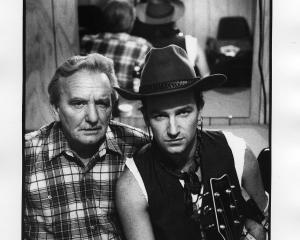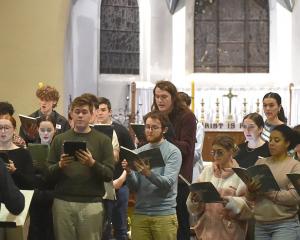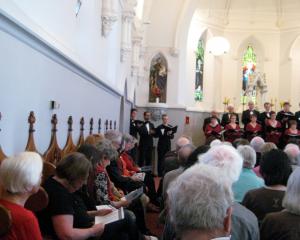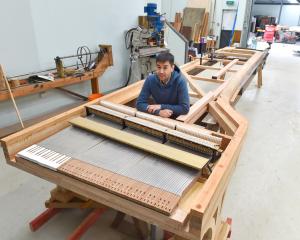Peter Posa's career has been both up and down, a path that emulates his fast, fluid licks. Shane Gilchrist riffs with the New Zealand guitar great, whose latest album marks more than 50 years in the music business.
Peter Posa, the West Auckland guitar wonder-kid who came to fame via his trademark electric sound on a slew of '60s hits, including Wheels, The White Rabbit and Guitar Boogie, prefers to play it quieter these days.
At the zenith of his career, Posa had 13 guitars, though most have since been sold. Now, as he approaches his 71st birthday, Posa prefers the acoustic guitar because of its gentler, more expressive tones. Still, he hasn't ruled out plugging into an amplifier at some point and letting rip.
"Sometimes when I hear a nice electric guitar part on the radio, I think, 'Yeah!'," the Kiwi music legend enthuses from his home in Te Awamutu, where he and wife Margaret have lived for the past nine years, having moved from West Auckland where Posa first honed licks that eventually led to him rubbing shoulders with American guitar great Chet Atkins, among others.
Fast fretwork aside, Posa and the late Atkins share another claim to fame: each has had a guitar named after him (in Posa's case, a 1960s marque by New Zealand company Jansen; for Atkins, it was a United States-made Gretsch model).
The reason why some have guitars named after them is that they are regarded as better players than most. While Posa is among the upper echelon when it comes to instrumental technique, he is known equally for a sonic approach that featured a custom-made tape echo allied to precise, fluid lead lines not unlike those of another early influence, the late Les Paul.
Proof of Posa's prowess can be found in a new career anthology, White Rabbit: the very best of Peter Posa. Released by major label Sony yesterday, the 24-track album is a testament to both stylistic showboating and technical substance.
The White Rabbit, the song for which Posa is most famous, is just one such example. Written by Auckland musicians Bill Ivory and Graham Rosling and recorded in one take by Posa in 1963, it made him a household name, firstly in New Zealand and the Pacific Islands, then soon afterwards in Australia, where it was a top-20 hit.
"I've probably heard The White Rabbit 10,000 times - and played it that many times, too - but I never get sick of it. Everybody connects with the song. It sold more than 100,000 copies in New Zealand."
Alas, for fans of Posa, there will be no concerts to support the release of White Rabbit.
Although Sony raised the possibility, health reasons preclude any lengthy tour schedules.
"I didn't really feel up to it," Posa says. "I've got an illness called fibromyalgia; it's pretty antsy, so I don't want to plan anything too far ahead because I don't know how I'm going to feel on any particular day. It is frustrating."
Still, Posa manages to play guitar up to five hours a day ("sometimes ...when I feel like it"). Such rigorous workouts echo his early days, an adherence to a work ethic gained within a Yugoslav family living in the Henderson Valley, West Auckland.
Having started playing ukulele aged 7 and before receiving his first real guitar on his ninth birthday, Posa would search the family vineyard in an attempt to find wood to fashion into guitar shapes. He'd also utilise clothesline wire, unravelling the strands and attaching the thinned windings to a rudimentary guitar neck.
He also recalls social gatherings of families and friends, many of whom would bring guitars, accordions, violins and various other instruments.
He cites numerous influences, from the country and western of Hank Williams, George Jones, Tex Morton and Col Wilson and the Tumbleweeds, to the swing of Glenn Miller and Frank Sinatra, among others.
Posa also had plenty of help from his brothers, Boris and Walter, who drove him to the many talent quests that dotted the New Zealand entertainment landscape in the days before television, and by 18 he had formed his own band, the Peter Posa Combo, a West Auckland act able to cover a wide range of music for any type of function.
By that time, he was also working for the Public Trust. Though Posa "loved" his administrative role, his bosses weren't so happy about him playing gigs at the weekend. "They wanted me to keep my head down and be devoted entirely to the public service. I had to make a choice."
Music, clearly, was the winner.
Though Posa's New Zealand recording career started in 1960 when he signed to Eldred Stebbings' Zodiac record label, releasing 11 singles and an album during a two-year period, his move to Viking Records in 1963 and the release of The White Rabbit proved more significant.
"It changed my whole life," Posa reflects. "White Rabbit had a magic feel. It was done live with the band and was exactly two minutes long, which suited radio play."
The single's release also required relentless work. Posa recalls taking only two days off in 1963 as he embarked on tours in New Zealand, Australia and the Pacific. The following year, the song took him to the United States, where he spent six months touring.
During this time, Posa fulfilled a few boyhood dreams: he met Chet Atkins in Nashville, Frank Sinatra and Dean Martin in Las Vegas, and accompanied jazz guitarist Herb Ellis in Los Angeles.
"They were so hospitable and were great audiences. I was invited to play at the Grand Ole Opry ... I had this really good offer made to me by RCA Records to be a session musician, but I wasn't mature enough to stay over there for a long period.
"My manager went over with me but left me there after about 10 days. I was 24 and got very homesick. I'd only gone to Australia before. Going straight to America like that was a big opportunity but it was very hard. I came home at Christmas."
For the remainder of his Viking contract and beyond, Posa continued to tour New Zealand, Australia and the South Pacific, where his popularity was maintained by a prodigious output (he released 16 albums, 15 EPs and 13 singles during three years with Viking, from 1963-65).
Posa carried on performing (and recording) and also played a hand in the formation of The Chicks in 1965 following a chance meeting at a West Auckland party.
However, a car crash in 1970, in which Posa suffered severe whiplash, prompted a slide in the guitarist's fortunes.
"I absolutely wrecked my neck and it's been bad ever since. It got to me. I had 33 stitches in my face. It made me feel really depressed for quite a while," Posa recalls, adding he also had a drinking problem.
"The 1970s was my worst time for drinking and depression ... It's good to admit. Look at John Kirwan and how he's helped others [with depression]. A lot of people ring me and talk to me when they feel down because I've been through it.
"I got myself together again. About 1973 I went to a restaurant one night and liked the feel of the place, so I asked if they'd be interested in having me play there. I can't remember exactly how long I stayed there, but I did a lot of restaurant work for about three years.
"Ten years of consistent touring gets to you in the end. And if I wasn't touring I'd be in a recording studio. It was go, go, go. I took it easy from then on. I slowed down deliberately, both for health reasons and to keep myself sane. I might not have been in the public eye as much, because I wasn't touring, but I was still playing."
Posa also influenced others in the music business. He turned his hand to producing albums in the 1970s, for John Hore (now Grenell) and others.
Posa's song Rose Can I Share A Bed With You, recorded by Toni Williams, reached gold record status after becoming a hit in New Zealand in 1976.
"I also did a lot of tours with overseas acts in the late '70s and early 1980s, including Helen Shapiro, Gene Pitney, Hank Snow, Marty Robbins and Slim Whitman."
Marriage also helped. Posa met Margaret at a church meeting in 1990; the couple wed the following year (they have no children).
"I was a Christian then but I've pulled out of that," Posa says, adding, "music is always the best therapy. It cures everything."
A best-of album released by BMG in 1998 gave Posa the confidence to return to the studio, the result of which was My Pick, an album of acoustic material released in 2003.
In 2008, Posa's lifelong dedication to music was recognised when he was appointed a Member of the New Zealand Order of Merit in the Queen's Birthday Honours list. Earlier that year, Bob Everhart, president of the US National Traditional Country Music Association and the MC of a concert at Otorohanga, presented Posa with an induction plaque into America's Old Time Country Music Hall of Fame as well as the 2007 Rural Roots Music Commission's "Musician of the Year" award for My Pick.
Not bad for someone who had only five formal guitar lessons, can't read music and prefers to improvise rather than learn his lines by rote.
"I just bought guitar books and taught myself. I'm lucky to have a good ear."
Posa says his biggest musical thrill these days comes from the fingers of others.
"I was mentor for Tommy Emmanuel, as was Chet Atkins. Tommy has been voted by Guitar Player magazine and others as the best in the world. That makes me feel good because I like to think I had something to do with his musical growth.
"I get cassettes and CDs from people who have sent me their versions of The White Rabbit or Guitar Boogie. Sometimes they are bad and sometimes they are good. It's nice to think you've influenced other people and they'll have their turn at it."
Hear it
White Rabbit: the very best of Peter Posa (Sony) is out now.












